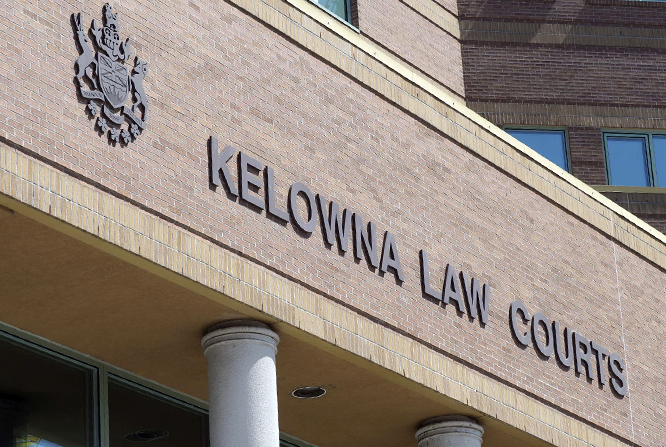Elevate your local knowledge
Sign up for the iNFOnews newsletter today!
Sign up for the iNFOnews newsletter today!
Selecting your primary region ensures you get the stories that matter to you first.

A Kelowna man who packaged LSD and cannabis like candy and sold it to teens from his Telsa has been sentenced to jail.
Roberto De Castro had argued that because of his lack of a criminal record, honest remorse, and the fact that he wasn’t selling hard drugs, he should avoid prison and instead spend time under house arrest.
However, BC Supreme Court Justice Richard Hewson wasn’t swayed, pointing out De Castro ran a sophisticated trafficking enterprise that appealed to youth.
“Being a teenager is hard at the best of times,” Justice Hewson said in a Sept. 5 Supreme Court decision. “It is even harder when traffickers are providing you with mind-altering drugs packaged like candy, delivered on demand.”
The decision said De Castro came onto the RCMP’s radar in late 2021, when a parent complained their 14-year-old son had bought LSD from a man driving a Tesla.
Police began surveilling De Castro and found him selling LSD, psilocybin — which is a key ingredient in magic mushrooms — and cannabis.
“He was observed conducting hand-to-hand transactions with adolescents and he sold psilocybin and LSD directly to undercover police officers. They purchased small amounts of drugs from Mr. De Castro on four occasions, paying him with marked bills,” the Justice said.
Police obtained a warrant and searched his apartment, finding a highly organized drug-dealing operation.
The drugs were packaged into brightly coloured bags with the names “Oreo Cookies,” “Doritos,” and “Kraft Peanut Butter.”
Along with vacuum-sealed bags of psilocybin, LSD tabs and cannabis, De Castro also had business cards printed with “High Supply” and a stamp made which would advertise his business logo on paper delivery bags.
“He would send by text message a menu setting out the drugs for sale, the price for each and the hours within which he would deliver,’ the Justice said.
Police seized 17 kilograms of cannabis, 1.8 kgs of psilocybin, 1,300 LSD tabs and $10,000 in cash. The drugs were worth between $188,000 and $145,000.
Justice Hewson noted that the case was rare as most drug trafficking cases involve highly addictive drugs like meth, cocaine and fentanyl. It’s unusual to see cases only involving psychedelic drugs and cannabis.
“LSD and psilocybin have little risk of physical dependence and cannabis has a moderate risk of dependence in heavy users,” the Justice said.
As the drugs De Castro sold are a lower classification, sentences for dealing in them tend to be different than those for trafficking highly addictive drugs.
De Castro’s lawyer argued for a sentence of house arrest. He pointed out his client was 41 years old and had no criminal record, was back working in his hometown of Montreal and living with his mom. He has close support from his family and employer, along with patrons from the restaurant where he works.
“He has $30,000 in savings, $7,000 in credit card debt and no criminal record. He has no mental health concerns, drinks rarely and no longer uses cannabis or other substances,” the decision read. “Unlike many offenders who come before the court on drug charges, Mr. De Castro is not an addict.”
However, the Justice said he was running a sophisticated trafficking enterprise conducted for profit.
“It included the branding and packaging of drugs in a manner calculated to appeal to youthful customers. Most concerningly, adolescents were among the people Mr. De Castro was selling drugs to,” Justice Hewson said.
“The public must see and understand that those who operate drug-trafficking businesses, particularly those who sell drugs to adolescents, will face jail time. A sentence of house arrest would not be adequate to deter others tempted to start trafficking businesses like Mr. De Castro’s, nor would it provide the necessary denunciatory effect,” Justice Hewson said.
Ultimately, De Castro was sentenced to 12 months in jail.
News from © iNFOnews.ca, . All rights reserved.
This material may not be published, broadcast, rewritten or redistributed.

This site is protected by reCAPTCHA and the Google Privacy Policy and Terms of Service apply.
Want to share your thoughts, add context, or connect with others in your community?
You must be logged in to post a comment.